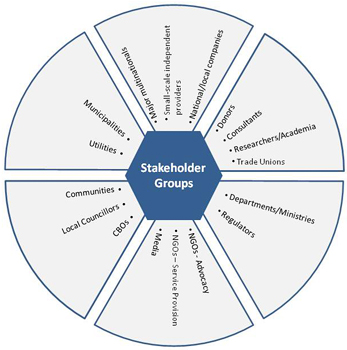In the 1990s and early 2000s, Public-Private
Partnerships (PPPs) were seen by some as a critical solution to water and sanitation challenges. Partnerships have since become increasingly complex and vary in scope and scale (e.g. community, city-wide, national or international; few or multiple stakeholders). They may be mandated by government or emerge as a logical response and may or may not be formalised through contracts or agreements. Partnerships may involve not only service delivery, but also finance, policy-making, regulation, research or advocacy.
BPD was established as an informal initiative in 1998 (as Business Partners for Development) by the World Bank, DFID, multi-national water companies, WaterAid and other NGOs to test and promote a ‘tri-sector’ approach to service delivery, i.e. bringing together the strengths of the public, private and civil society sectors.
BPD has since become independent and expanded in scope. Responding to the changing context, the organisation applies its skills to a wide range of relationships, stakeholders, partnership projects and research topics in a host of different water and sanitation contexts.